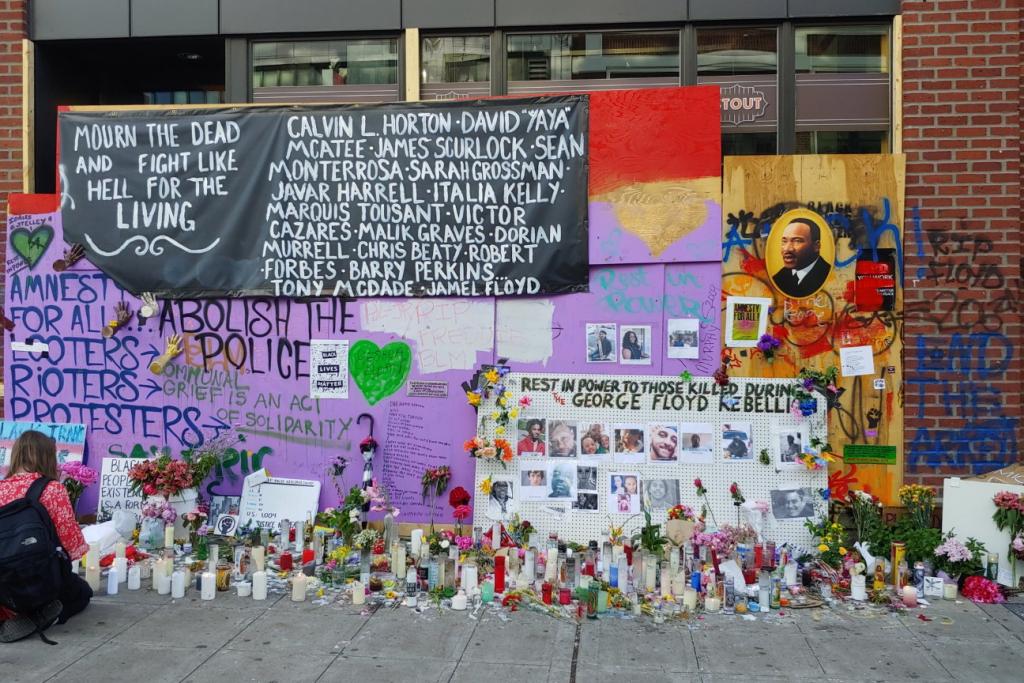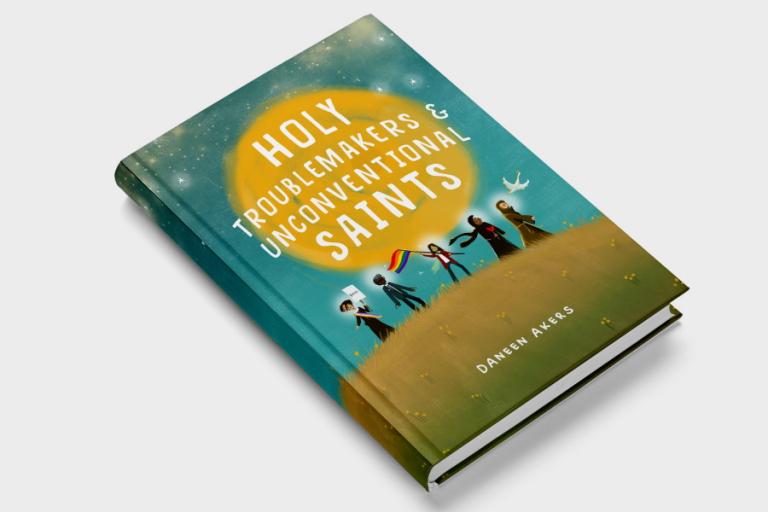
It has been a long few years. Understatement of the decade, right? Between Trump’s rise to power, his many flagrant abuses while in power, the fight to get him out of power, an insurrection and failed coup to keep him in power, and—oh yeah—a global pandemic, we have all lived through an almost unfathomably difficult period of time. And for many of us, this period has brought about a number of personal changes.
I haven’t blogged very much for a while, and I’d like to fix that. One of the reasons for my absence has been that so much has changed, I haven’t known where to start writing again that won’t feel like an abrupt 180 from much of where I’ve been. But the fact of the matter is that some of it is a complete reversal. And there’s no getting around it being abrupt. So here’s my attempt to wipe the slate and fill you in on a few of the biggest changes that have happened for me, which will affect the blog moving forward.
(Some of the following has been adapted from Facebook posts I made while processing these changes in real time.)
Politics
I used to be of the persuasion that Christians ought to stay out of politics. I believed that we were to seek the kingdom of God, which I thought to be something entirely separate and removed from earthly politics, and that we should leave the secular world to its own devices when it comes to running the kingdoms of the world. There’s no other way to put it: I was utterly and unequivocally wrong.
I’ve already written a little about this, specifically in reference to voting, so I won’t rehash everything I wrote there. But I’ve since come much further than simply believing that Christians should vote.
Politics affect everything. They aren’t, as I once believed, abstract arguments having little bearing on our day-to-day lives. Bad politics literally kill people, and good politics save them. If we’re to truly care about “the least of these,” then we have to prioritize fighting for policies that will help the most marginalized populations among us. We need to be activists.
Jesus’ very gospel, I’ve come to realize, is intensely political. Nowhere in Jesus’ words do we hear the idea that he was concerned with individual behaviors but not matters of the state. He frequently weighed in on the politics of his day, and his call to seek the kingdom of God is itself a call to a certain kind of politics.
I’ve honestly lost most of my interest in debating theology that isn’t political. Believe that Jesus is divine or don’t; it won’t keep people from dying who can’t afford health insurance.
At the same time, I know from personal experience that bad theology breeds bad politics, and good theology has at least the chance to push people toward good politics. So I don’t want to write it off entirely. But expect my blog to be far more political than it has been previously.
Pacifism
I have long made love the central tenet of my ethical system. “It all comes down to love,” as I like to say. And that hasn’t changed. But I have come to realize that I was applying the principle of love in ways that ended up being harmful to some of the most vulnerable members of society.
Specifically, I took the concept of loving one’s enemies to such an extreme that I would never consider killing them even in defense of the innocent. This was wrong of me. I can no longer in good conscience consider myself a pacifist. That is, I am no longer committed exclusively to non-violence.
This is something I had been processing for some time, but it came to a head after the January 6 insurrection on the Capitol and the ongoing threat of violence from the right. It brought me to a crossroads where I knew I had to pick a path.
Don’t get me wrong—I still believe in the power of non-violent resistance, and I’m still committed to seeking non-violent methods as the first priority. But it has become increasingly clear that the fascist threat is something that is beyond the possibility of reasonable dialog. Fascists are foundationally committed to carrying out violence against the most vulnerable members of society, and they must be stopped at all costs. I hope it doesn’t come to the point of requiring violent force to stop them, but we have to be prepared for that possibility.
The Confederates would have never given up their slaves without a Civil War to force their hand. They had to be stopped by violent force. The Nazis and other fascists of WWII likewise would have never given up had they not been forced into submission. And we now face a fascist threat that is literally composed of both Neo-Confederates and Neo-Nazis, all equally committed to the persecution of the most marginalized groups among us. They must be stopped.
I still believe in the conviction that we are to love our enemies. However, our love for enemies cannot trump our love for “the least of these.” To refuse to take action against these fascists, including the use of violent force if necessary, would be to condemn the marginalized and oppressed to further suffering and death. There is nothing loving about that, and I can no longer condone such a stance.
It has ultimately become clear to me that my pacifism was a privileged position that I, as a white male-presenting individual, was able to hold without consequence for myself, but one which has the potential to cause great harm to the marginalized. So I must renounce it.
Queerness
I have also come to realize that I am not, as I once believed, male, but I am in fact non-binary. That is, I am neither male nor female. Note that this isn’t a change in my gender. It’s not that I once was male and am now non-binary. I have always been non-binary, but it took me three decades to unpack the male identity assigned to me at birth and imposed upon me throughout my life. And I’ve finally realized that maleness doesn’t fit me at all.
I have for a very long time felt that I do not relate with other males in quite the same way they seem to relate with each other. It’s a hard thing to pinpoint, because the lines between the cultural norms we call masculinity and the actual essence of whatever masculinity should represent are blurred, to say the least. But the disconnect has long been there.
Conversely, I have for a long time felt an incredibly strong sense of connection to and belonging within the queer community. Regardless of their specific gender or orientation, LGBTQ people have simply felt like my people, in a way that cishet men haven’t. But I also didn’t feel that I could really be queer, given that I’ve never identified in any way as female, and that—try as I may to broaden my horizons—I’m simply not attracted to men at all.
This had left me for some time in an odd place of frustrated limbo, feeling that I didn’t quite fit anywhere. I don’t know why it took me so long to realize that all this was because I’m non-binary. But eventually, it clicked.
I’ve come to understand that the things I had perceived as maleness in myself had really just been holdovers of cultural expectations that I hadn’t fully shaken. Things like the thought that because I’m most comfortable wearing traditionally “male” clothing, having a beard, and presenting as traditionally “masculine,” that I must be male.
But none of that actually makes me male. Because I’m not male. I’m non-binary. And my pronouns are they/them.
I’ve additionally realized I’m polysexual. (And while I’ve discussed my being non-binary elsewhere, I think this post is actually my first time applying the label “polysexual” to myself. Feels good!)
Polysexual means being attracted to people of multiple different genders. It isn’t as broad as pansexual (being attracted to people of all genders), as I’ve still never experienced sexual attraction to any men. But I do experience attraction to people of many other genders.
In short, it turns out I’m queer AF!
Final thoughts
These changes affect a lot of other things that are only going to get a passing mention at best. For example, I don’t consider myself an Anabaptist any more, despite how central that was to my identity for a time. In fact, I’m pretty uninterested in any of the theological or denominational labels that I have at times applied to myself. Even Christianity, as a term and a concept, really isn’t something I’m holding all that tightly any more.
Faith, as I experience it these days, is something to be lived, to be put into action in solidarity with the marginalized and oppressed. I’m still a huge fan of Jesus, precisely because of how he lived out his faith in this manner. He continually inspires me to do the same. But as for the rest of the church and Christianity? Meh. We’ll see.











